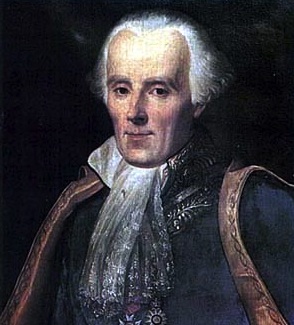Reading on: the Newtonian world-machine
LaPlace, Pierre, (1749- 1827) A Philosophical Essay on Probabilities Dover, New York 1951 Original publication 1819 [100 words] the clockwork deterministic universe worldview
Consider an intelligence which, at any instant, could have a knowledge of all forces controlling nature together with the momentary conditions of all the entities of which nature consists.
If this intelligence were powerful enough to submit all this data to analysis it would be able to embrace in a single formula the movements of the largest bodies in the universe and those of the lightest atoms; for it, nothing would be uncertain; the future and the past would be equally present to its eyes.


